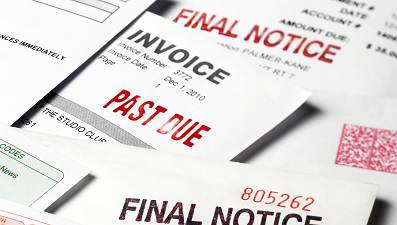
Know Your Rights When Dealing With Debt Collectors!
Abuse and harassment from debt collectors were among the reasons the US federal government created the Consumer Financial Protection Bureau. That should give you some insight into the preferred method of doing business for many debt collectors. As for the millions of us in debt, we often have other stressors going on in our lives and the last thing needed are calls from bill collectors. In this article, we’ll share tips on how to better deal with collections agents, and introduce you to a few tidbits they do not want you to know.
How to Deal With Debt Collectors
Keep your conversation to a minimum. You should treat the phone call as an interview because that’s basically what it is. They’re trying to gauge whether or not you have the capacity to pay and how much. You can negotiate. Just remember this: the more you pay, the more the debt collector earns. They’re commissions normally run anywhere from 30-50% of the amount they generate. It’s not unusual to offer to pay 15 percent of what they’re asking before settling for 50 percent. Keep emotion out of it. The debt collector is counting on you being a bit embarrassed about not being able to pay your bill and will definitely try to leverage that feeling into a quick settlement. Don’t fall for it. Treat all conversations with them as business communications. Tell them to stop calling you. Yes, you do have that right! Federal law says that you can ask debt collectors to cease all contact with you. It’s best to make this request in writing. What Debt Collectors Don’t Want You to Know They bluff a lot. In many instances, the threats issued by debt collectors are grossly inflated. Threats of you being sued are often baseless as many companies are not setup to sue over small amounts of debt. Deadlines carry little meaning. Debt collectors are in a hurry to get as much money as they can from you as quickly as possible. However, the deadlines they put in place are absolutely meaningless. Get it in writing. Before engaging in conversation, tell the debt collector to send you all information about your debt to you in writing. If you suspect that you do not actually owe the debt in question, say so in a written reply within 30 days. By federal law, they will be unable to contact you again unless it is to provide you with proof of the debt. They have to apply by a set of rules. Debt collectors are in violation of the Fair Debt Collection Practices Act if they:
- Using tough language or threats
- Contact you after normal hours, which are defined as before 8 am and after 9 pm
- Pretend to be a law enforcement officer or lawyer
- Contact you directly if it is known by them that you have legal representation already, or
- Threaten to publish your name on a “bad debt” list.
If you’re being harassed by a debt collector, we urge you to contact our skilled attorneys who can provide you assistance with the various legal options available to you.
